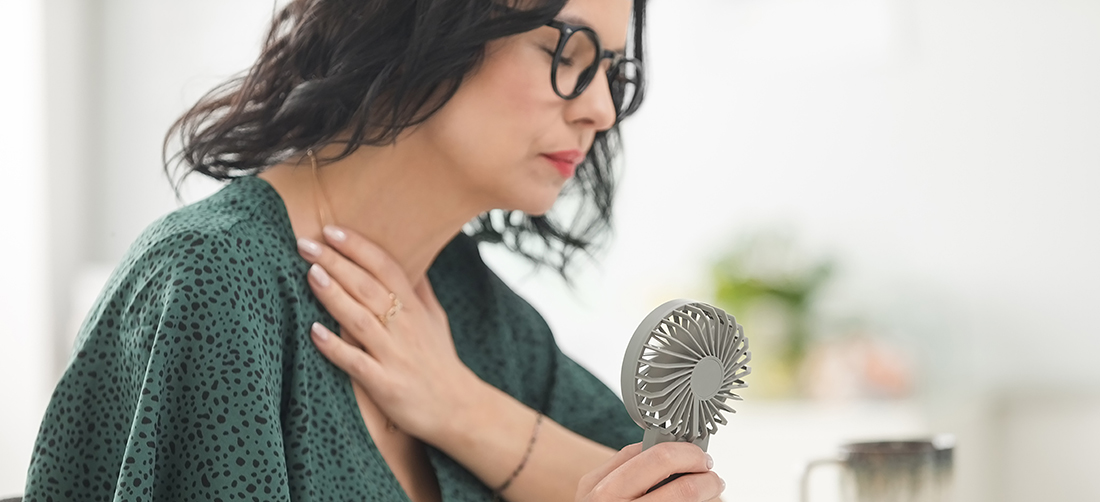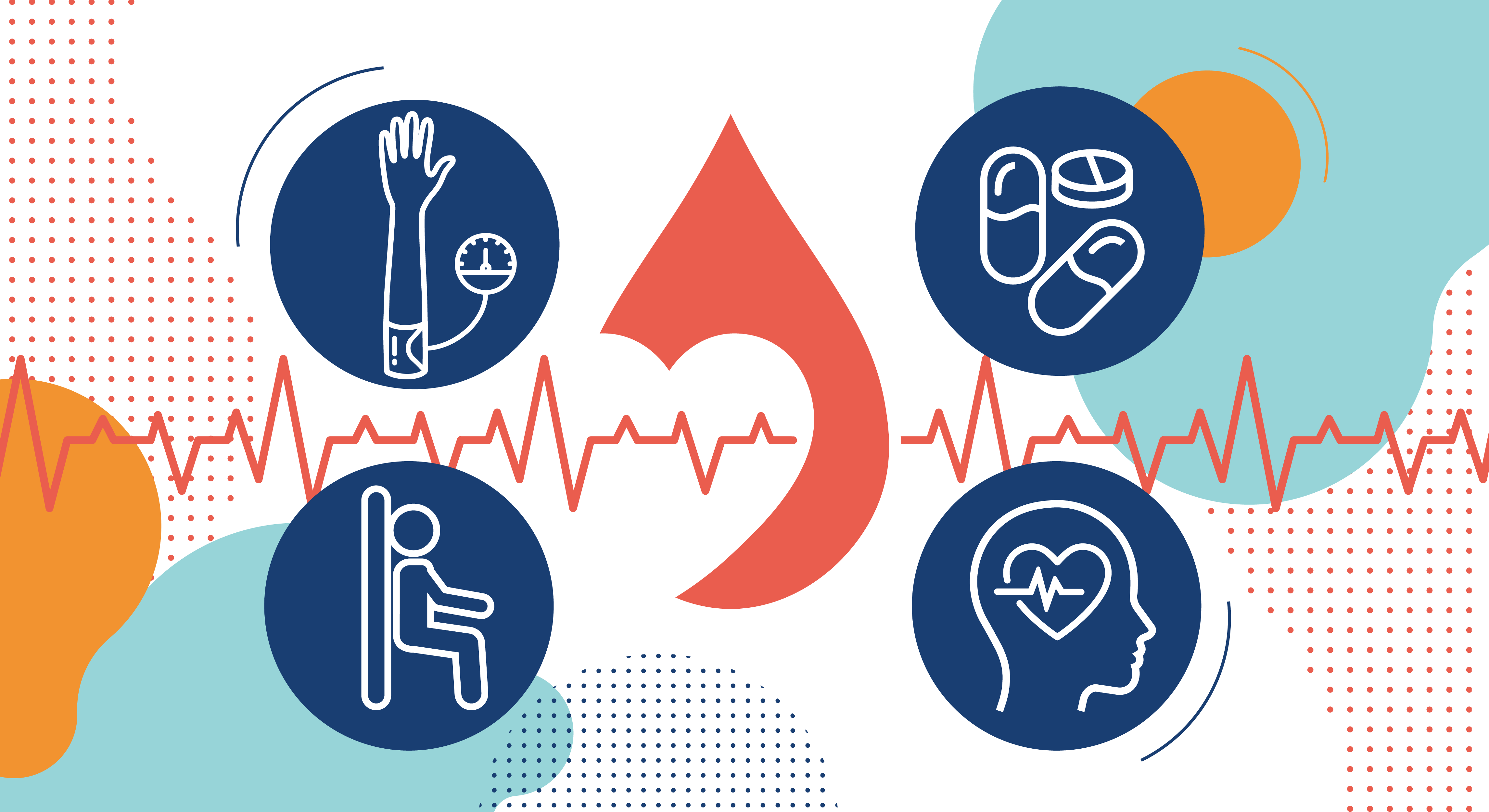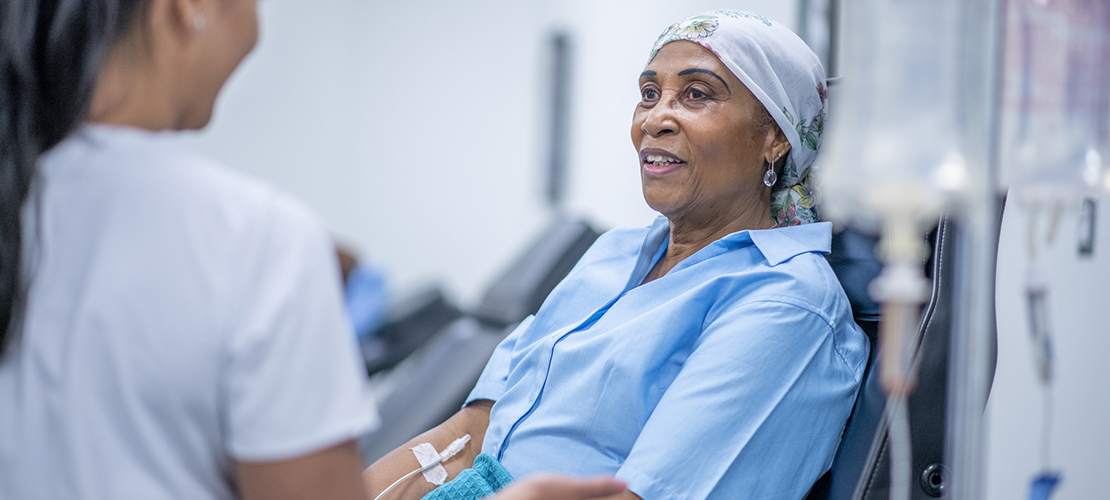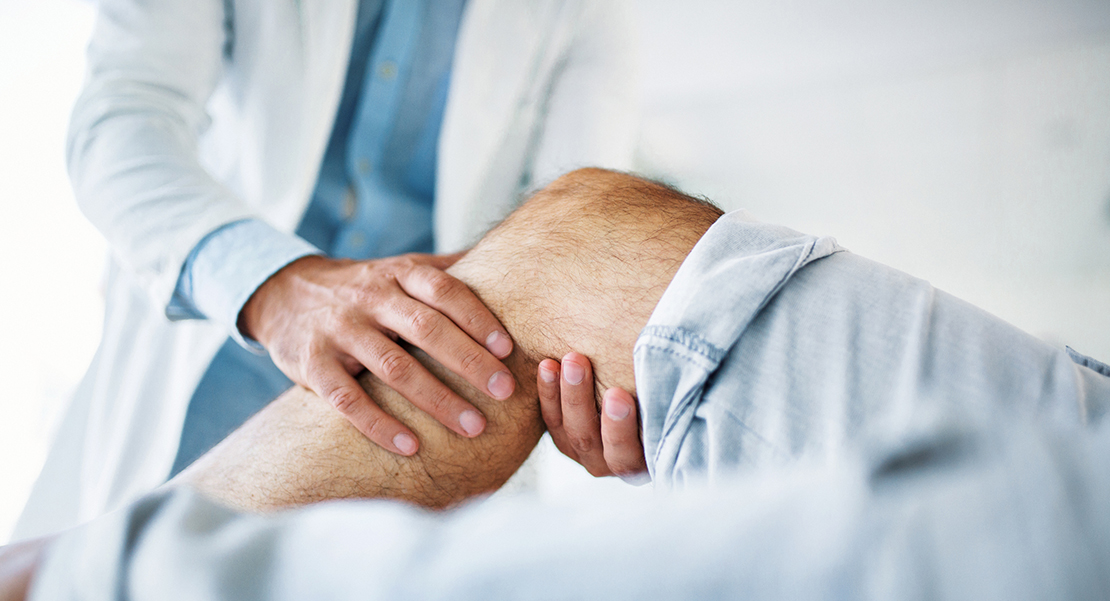Menopause is when women’s periods stop due to lower hormone levels. It usually affects women between the ages of 45 and 55, but it can happen earlier.
Perimenopause, the period before a woman enters the menopause, can cause symptoms like anxiety, mood swings, brain fog, hot flushes and irregular periods. Some of these symptoms can start years before periods stop and carry on afterwards.
This can have a big impact on women’s quality of life. It can affect relationships and make things difficult at work.
Until recently, the menopause wasn’t commonly discussed in public. This has often left women with little support or information to help deal with the consequences of the menopause.
This has started to change in recent years, partly thanks to a number of female celebrities including TV presenter, Davina McCall, who share their experiences of the menopause. Davina has spoken openly about her own menopause journey and was the guest speaker for the NIHR Reproductive Health and Childbirth National Research Champions Group.
She said: “All women will go through the menopause and we want to be armed with all the information and support and help we can have. I call it the second spring, it doesn’t have to be all doom and gloom, it is like being reborn - if you can get the support you need. We've got to lift each other up and research is the way to do it."
The NIHR supports a lot of research into women’s and reproductive health, but only a few of these studies are currently on the menopause. This is something that the NIHR is working to change.
National Lead for the NIHR Reproductive Health & Childbirth Specialty, Nigel Simpson said:
“Women are very open to research. They have a desire to help other women to understand more about the common problems they encounter. So we need to capture this enthusiasm and ensure that there are opportunities to take part in research.
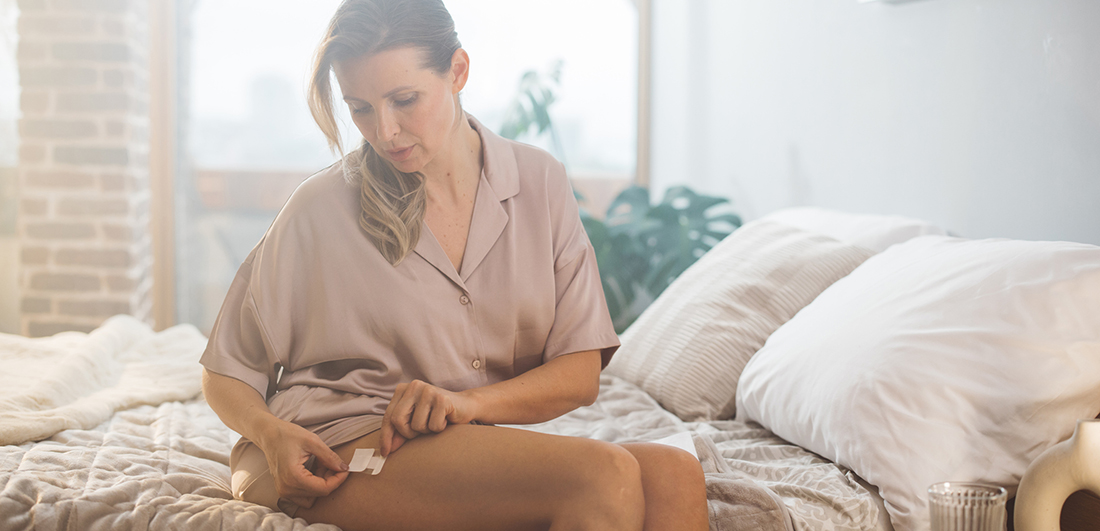
HRT and the risk of breast cancer
The most effective treatment for symptoms of the menopause is hormone replacement therapy (HRT). HRT works to replace the hormones oestrogen and progesterone, which fall to low levels in women who are going through the menopause. Taking HRT can be life changing for women who have severe menopause symptoms.
But in the last few decades, women’s use of HRT has declined after some research showed it increased the risk of breast cancer. NIHR-funded research in 2020 showed this risk was actually very small.
The researchers looked at data from 99,000 women with breast cancer aged between 50 and 79. Each of these women was matched to five other women who did not have breast cancer (457,000 women). This was so researchers could look at the association between taking HRT and having a diagnosis of breast cancer. Overall, about a third of all of the women involved had taken HRT.
The study found there was no increase in risk of breast cancer for women who took HRT for less than a year. Risks did increase the longer that women took HRT treatment for longer than five years. But the risks then reduced again once women stopping taking the HRT. If women took combined HRT for less than five years, then stopped, there was no increase in breast cancer five more years down the line. Certain types of progestogens had a slightly higher risk than others.
Women’s age also made a difference. Women in their 50s had a lower risk compared to women in their 60s and 70s.
Not just a pill
There are new types of HRT being developed all the time to tackle menopausal symptoms, particularly hot flushes. Before they can be prescribed on the NHS, they have to be tested through clinical trials to see whether they are effective.
Hormones don’t necessarily have to be taken as a pill. They also come as patches, creams and gels. One study, sponsored by the pharmaceutical company Viramal, tested a new oestrogen cream. The study is comparing symptoms of hot flushes in women using different quantities of the cream, compared to those using one large dose of a hormone gel.
What if you can’t take HRT?
Women who have had breast, ovarian or womb cancer are unable to take HRT. Women who have untreated high blood pressure or liver disease are also advised not to take HRT. Some women, for various reasons, don’t wish to take it. More research is needed into alternatives to HRT, to relieve menopause symptoms.
One trial, funded by the NIHR and called Blush, is comparing two drug alternatives to HRT. The trial will see which is more effective and better value for money at controlling hot flushes and night sweats. The trial is run by the University of Nottingham.
The Blush trial is currently being set up and will comparing oxybutynin with another drug called venlafaxine. Oxybutynin is usually used for an overactive bladder. Venlafaxine is prescribed for menopausal symptoms such as hot flushes and to treat depression and anxiety.
Just under 1000 women with menopause symptoms will take part in the trial. Some of them choose not to take HRT and some of them cannot take it for medical reasons. Half of the women will be given oxybutynin, and the other half venlafaxine. The researchers will see how often the women get hot flushes and how severe they are after 12 weeks of taking one of the treatments. They will then compare between the two groups to see which drug is most effective.

What else might affect menopause symptoms?
Various lifestyle factors can affect how badly women suffer from menopause symptoms. We know that eating well, exercising and looking after your mental wellbeing can help with menopausal symptoms. In particular, women going through the menopause should eat foods that are rich in calcium, including milk, yoghurt and kale. This can help to keep their bones healthy.
A small study is looking at whether different diets can have an impact on menopause symptoms. The researchers are comparing a Mediterranean diet with the Ultimate Cholesterol Lowering Plan (ULP) diet. The Mediterranean diet contains lots of vegetables, fruits, nuts, cereals, grains, fish and unsaturated fats such as olive oil. The UCLP diet is promoted by the medical charity Heart UK to help women look after their cardiovascular health during the menopause. The study was carried out at and funded by the University of Chester. The team recruited two groups of women with menopause symptoms. Over three months, one group started on the UCLP diet and then changed over to the Mediterranean diet. The other group began with the Mediterranean diet then swapped to the UCLP. The researchers are analysing the data to see if there were any notable changes in symptoms in either group of women.
When menopause comes early
Menopause can also affect women who are under the age of 40, in a condition known as premature ovarian insufficiency (POI). POI affects one in every 100 women. We often don’t know what causes POI. In some women, it can be because of genetic conditions such as Turner's syndrome. It can also be due to immune disorders, treatments for cancer or surgery involving the ovaries.
Women with POI tend to have no periods or very irregular periods. Many women get menopause symptoms such as hot flushes and sweats. Longer term, women with POI are at higher risk of bone thinning (osteoporosis), fractures, heart disease and memory problems than women who experience menopause at the typical age.
Treatments for POI include HRT or the contraceptive pill. However, we don’t know which is best at treating the short-term menopausal symptoms as well as guarding against long-term risks.
The POISE trial is run by the University of Nottingham and funded by the NIHR. It will involve just under 500 women, some of whom will take HRT and some will take the pill. Researchers will follow the women for up to five years, to see how the treatments affect their symptoms. They will also carry out other tests, for example for bone density, blood pressure and weight.
After five years, the team will see whether one of the treatments was more effective. They will take both long-term risks and short-term symptoms into account.
How you can get involved with research
Sign up to Be Part of Research to be contacted about a range of health and care research. Or check out our full list of studies to see if one is right for you.
And if taking part in a study doesn’t feel right at the moment there are other ways to get involved in research.
